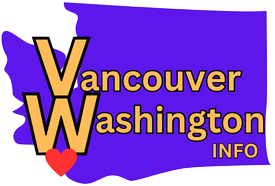
Cost of Living Comparison: Portland, Oregon vs Vancouver, Washington
Are you trying to decide between living in Portland, Oregon or Vancouver, Washington? Well, we’ve got you covered! In this article, we will compare the cost of living in these two beautiful cities, giving you a better understanding of which one might be more affordable for you. By the end, you’ll have all the information you need to make an informed decision and potentially save some money along the way. So, let’s get started!
Table of Contents
ToggleHousing Costs
Renting in Portland
If you’re considering renting a place in Portland, Oregon, you’ll find a variety of options to suit your needs and budget. The rental market in Portland is quite competitive, with a range of prices depending on the neighborhood and the type of property. Renting a one-bedroom apartment in the city center can cost around $1,500 – $2,000 per month, while outside the city center, the prices drop to approximately $1,200 – $1,600 per month. It’s important to note that rental prices tend to be higher in popular areas such as the Pearl District or downtown Portland.
Renting in Vancouver
On the other side of the Columbia River, Vancouver, Washington offers a more affordable housing market compared to Portland. Renting in Vancouver generally costs less than in Portland, providing a great alternative for those looking to save money. A one-bedroom apartment in the city center can be found for around $1,100 – $1,500 per month, while outside the city center, rents may range from $900 – $1,300 per month. Lower rental prices combined with proximity to Portland can make Vancouver an attractive option for individuals who work or study in Portland but prefer a more affordable living situation.
Buying a Home in Portland
If you’re in the market to buy a home, Portland holds a diverse range of neighborhoods and properties to choose from. Over the past few years, Portland’s real estate market has experienced significant growth, resulting in higher home prices. The median home price in Portland is approximately $450,000, but this can vary widely depending on the neighborhood and property size. Areas like Laurelhurst and Eastmoreland tend to have higher-priced homes due to their desirable location and amenities.
Buying a Home in Vancouver
Vancouver, Washington offers a more affordable real estate market than Portland, making it an appealing option for potential homebuyers. The median home price in Vancouver is around $380,000, which is significantly lower compared to Portland. Housing options in Vancouver vary, from single-family homes to townhouses and condos. The cost of homes in Vancouver is generally more budget-friendly, especially for those wishing to find affordable housing options within close proximity to Portland.

This image is property of pixabay.com.
Utilities and Home Maintenance
When it comes to utilities and home maintenance, both Portland and Vancouver have similar cost structures. Expect to pay around $150 – $200 per month for essential services like electricity, heating, cooling, and water. Additionally, internet and cable TV packages can range from $60 – $100 per month depending on the provider and plan you choose. Home maintenance costs, such as repairs and maintenance, can vary depending on the age and condition of the property. As a homeowner, it’s important to budget for these expenses and account for unexpected repairs that may arise.
Transportation Costs
Public Transportation in Portland
Portland is known for its public transportation system, which includes buses, light rail (MAX), and streetcars. TriMet is the region’s transit agency, providing convenient and reliable services throughout the city and its surrounding areas. A one-way ticket for public transportation costs around $2.50, while a monthly pass can be purchased for approximately $100. The transportation system in Portland is well-connected, making it easy to get around the city without relying on a personal vehicle.
Public Transportation in Vancouver
Although Vancouver does not have the same extensive public transportation system as Portland, it still offers some options for getting around. The C-TRAN bus service is the primary public transportation provider in Vancouver, offering affordable fares and reliable routes. A one-way ticket for public transportation in Vancouver costs around $1.80, while a monthly pass can be purchased for approximately $60. While the options may be more limited compared to Portland, public transportation in Vancouver can still be a viable and cost-effective way to commute in the area.
Gasoline and Vehicle Expenses
Owning a vehicle in both Portland and Vancouver comes with similar costs. Gasoline prices in the region are typically on par with the national average, with prices ranging from $2.50 – $3.00 per gallon. Vehicle expenses, such as insurance, registration fees, and maintenance, will depend on several factors, including the type of vehicle you own and your driving history. It’s essential to budget for these expenses when calculating your overall transportation costs, whether you choose to rely on public transportation or own a vehicle.

This image is property of pixabay.com.
Commuting between Portland and Vancouver
Many individuals choose to live in Vancouver while working or studying in Portland due to the close proximity of the two cities, but it’s important to consider the costs of commuting. The most common mode of transportation for commuting between Portland and Vancouver is by car, as it offers flexibility and convenience. Keep in mind that commuting costs can add up, including gas expenses, toll fees if applicable, and wear and tear on your vehicle. It’s crucial to calculate these costs when deciding on the most cost-effective option for your situation.
Food and Grocery Costs
Grocery Stores in Portland
Portland offers a wide range of grocery stores, catering to various budgets and dietary preferences. Popular grocery chains such as Safeway, Fred Meyer, and New Seasons Market can be found throughout the city. Prices can vary depending on the store and the specific products you purchase, but generally, a week’s worth of groceries for one person can cost around $50 – $100, depending on your dietary choices. It’s worth exploring local farmers’ markets for fresh produce and supporting small businesses offering unique and specialty food items.
Grocery Stores in Vancouver
Vancouver also provides numerous grocery store options, ensuring residents can fulfill their grocery needs without traveling too far. Popular grocery chains in Vancouver include Safeway, Fred Meyer, and Grocery Outlet. Similar to Portland, the cost of groceries will depend on the store and the specific items you purchase. On average, you can expect to spend around $50 – $100 per week on groceries for one person. Exploring local farmers’ markets and specialty food stores can add variety to your shopping experience while supporting local producers.
Dining Out in Portland
Portland is renowned for its vibrant food scene, offering a wide range of dining options to satisfy every palate and budget. From food carts to fine dining establishments, there’s something for everyone. Dining out in Portland can range from affordable food cart options as low as $5 – $10 per meal to higher-end restaurants with entrees starting around $20 and going up from there. It’s important to note that prices can vary depending on the restaurant, location, and type of cuisine you choose.

This image is property of pixabay.com.
Dining Out in Vancouver
While Vancouver’s culinary scene may not be as well-known as Portland’s, the city still offers a variety of dining options for residents and visitors. From casual eateries to upscale dining establishments, there’s a range of choices available. Dining out in Vancouver can be more budget-friendly compared to Portland, with meals at affordable restaurants ranging from $10 – $20 per person. Fine dining experiences can still be enjoyed, with prices for entrees starting around $15 – $25 and increasing depending on the restaurant and cuisine.
Healthcare Costs
Health Insurance in Portland
When it comes to health insurance, Portland residents have a variety of options to choose from. Individuals can obtain coverage through employer-sponsored plans, private insurance companies, or government programs such as Medicaid or the Oregon Health Plan. The cost of health insurance will depend on several factors, including the level of coverage, deductibles, and copayments. It’s crucial to explore different insurance options and compare prices to find the most suitable and affordable plan for your healthcare needs.
Health Insurance in Vancouver
Similarly to Portland, residents of Vancouver have various health insurance options available to them. Coverage can be obtained through employer-sponsored plans, private insurance companies, or government programs such as Medicaid or the Washington Apple Health. The cost of health insurance will depend on several factors, including the type of plan, coverage levels, and individual circumstances. It is essential to evaluate different insurance plans to find the one that offers the best coverage and affordability.
Medical Services and Prescription Drugs
The cost of medical services and prescription drugs can vary depending on the healthcare provider and your health insurance plan. In both Portland and Vancouver, there are several hospitals, clinics, and pharmacies available to cater to residents’ healthcare needs. It’s important to understand your health insurance coverage and any out-of-pocket expenses you may be responsible for when seeking medical services or purchasing prescription medications. Planning and budgeting for medical costs is essential to ensure you stay healthy and financially secure.
Education Costs

Public Schools in Portland
Portland is home to a well-regarded public school system, offering a variety of educational options for students of all ages. Public schools in Portland are funded through property taxes and state funding, making them tuition-free for residents. However, there may still be some costs associated with public education, such as school supplies, extracurricular activities, and transportation fees. It’s worth researching the specific public schools in your desired neighborhood to understand any potential additional costs.
Public Schools in Vancouver
Vancouver, Washington also has a robust public school system, providing families with access to quality education. Public schools in Vancouver are funded similarly to Portland, through property taxes and state funding, resulting in tuition-free education for residents. Like in Portland, additional costs may be incurred for school supplies, extracurricular activities, and transportation fees. Researching the schools in your preferred areas and connecting with the respective school districts can provide more specific information on potential expenses.
Private Schools in Portland
For those seeking alternative education options, Portland offers a variety of private schools across different grade levels. Private schools in Portland can provide specialized curriculum, small class sizes, and unique educational philosophies. However, private education comes at a cost, with tuition fees ranging from a few thousand dollars to tens of thousands of dollars per year. It’s important to explore different private schools, their offerings, and associated costs to make an informed decision that aligns with your educational goals and budget.
Private Schools in Vancouver
Vancouver also has a selection of private schools to choose from, catering to families seeking alternative education options. Private schools in Vancouver offer unique educational programs, focusing on specific areas of study or alternative teaching methods. As with private schools in Portland, tuition fees for private education in Vancouver can range significantly depending on the school and the grade level. Thoroughly researching different private schools and understanding their associated costs is essential when considering private education and its financial implications.

Higher Education Expenses
Both Portland and Vancouver have higher education institutions that offer a range of degree programs and educational opportunities. Portland is home to well-known universities such as Portland State University, Reed College, and Lewis & Clark College. Similarly, Vancouver is home to Washington State University – Vancouver and Clark College. Tuition fees for higher education will depend on the specific institution, program, and whether you are an in-state or out-of-state student. It’s essential to explore financial aid options, scholarships, and work-study opportunities to help manage the cost of higher education.
Entertainment and Recreation Costs
Movie Theaters and Entertainment Venues
When it comes to entertainment, both Portland and Vancouver offer a variety of options for residents to enjoy. Movie theaters can be found in shopping centers or dedicated cinema complexes, providing a range of movie-viewing experiences. Ticket prices for a standard movie screening can range from $10 – $15, with additional costs for 3D or IMAX showings. Matinee prices and discounts for seniors and students may also be available. It’s also worth exploring local entertainment venues for live performances and events, with ticket prices varying depending on the artist or show.
Fitness Centers and Sports Facilities
For those wanting to stay active and maintain a healthy lifestyle, Portland and Vancouver have numerous fitness centers and sports facilities to choose from. Prices for gym memberships will vary depending on the location, facilities, and services offered. On average, a monthly membership at a standard gym in both cities can range from $30 – $60. If you prefer participating in organized sports, local community centers and sports clubs may offer various programs and memberships with associated costs.
Local Events and Festivals
Both Portland and Vancouver are known for their vibrant local events and festivals, providing a wide range of entertainment options throughout the year. From music festivals and cultural celebrations to food fairs and craft markets, there’s always something happening. Many events are free to attend, while others may have entrance fees or ticket prices that vary depending on the event or activity. It’s worth keeping an eye on local event calendars and social media to stay informed about upcoming events and any associated costs.
Cost of Goods and Services
Sales Tax
One notable difference when comparing Portland and Vancouver is the presence of sales tax. Portland, Oregon does not have a sales tax, meaning the price you see on an item or service is generally what you pay. On the other hand, Vancouver, Washington does have a sales tax, currently set at 8.4%. This can affect the overall cost of goods and services purchased in Vancouver when compared to Portland. It’s important to consider this when budgeting for day-to-day expenses and larger purchases.
Goods and Services Prices
The general cost of goods and services in both cities is influenced by several factors, including supply and demand, competition, and the local economy. In terms of everyday items, prices for groceries, clothing, and household goods can be relatively similar between Portland and Vancouver. However, keep in mind that Vancouver’s sales tax may increase the overall cost of goods compared to Portland. It’s worth comparing prices and exploring different shopping options to find the best deals and value for money.
Taxes
Income Tax
Another factor to consider when comparing the cost of living in Portland and Vancouver is income tax. Oregon has a progressive income tax system with rates ranging from 4.75% to 9.9% for individuals. In contrast, Washington does not have a state income tax, making it a favorable option for individuals seeking to minimize their income tax burden. It’s important to consider income tax implications when planning your budget and evaluating the overall cost of living in each city.
Property Tax
Property tax is another consideration when factoring in the cost of living in both cities. In Oregon, property tax rates are relatively high compared to the national average, with rates varying based on the assessed value of the property. Vancouver, on the other hand, has a lower property tax rate compared to Portland. Property tax rates in both cities can fluctuate and be influenced by factors such as changes in tax laws or local government budgets. It’s essential to research and understand the property tax implications before purchasing a home or property.
Sales Tax
As mentioned earlier, Portland does not have a sales tax, offering residents the advantage of not having to factor this additional cost into their daily expenses. In Vancouver, on the other hand, there is a sales tax of 8.4%. This means that when purchasing goods or services in Vancouver, the final price will include the sales tax amount. It’s important to keep this in mind when budgeting and comparing costs between the two cities. The absence of sales tax in Portland can provide some cost savings when it comes to day-to-day purchases.
Quality of Life Factors
Climate
Portland and Vancouver both experience a Pacific Northwest climate characterized by moderate temperatures and precipitation throughout the year. Summers in both cities tend to be mild and dry, with average temperatures in the 70s to low 80s Fahrenheit. Winters can be damp and cool, with temperatures ranging from the 30s to 50s Fahrenheit. The choice between the two cities may come down to personal preference, as both offer similar climates with small variations in annual rainfall and average temperatures.
Crime Rates
When it comes to safety, both Portland and Vancouver generally have lower crime rates compared to other larger cities in the United States. However, it’s important to research specific neighborhoods and areas within each city to get a better understanding of localized crime statistics. Both cities have established police departments that work to maintain public safety and provide residents with peace of mind.
Public Parks and Outdoor Activities
Portland and Vancouver are known for their commitment to green spaces and outdoor recreational activities. Portland, in particular, is famous for its extensive park system, including Forest Park, one of the largest urban forests in the United States. Likewise, Vancouver offers numerous parks and natural areas, allowing residents to enjoy outdoor activities such as hiking, biking, and picnicking. Access to nature and outdoor amenities is plentiful in both cities, contributing to a high quality of life for residents.
Cultural and Artistic Scene
Both Portland and Vancouver have thriving cultural and artistic scenes, offering residents a diverse range of entertainment and cultural experiences. Portland is known for its vibrant music scene, with numerous venues hosting local and international acts. The city is also home to various art galleries, theaters, and museums showcasing a wide range of artistic disciplines. Vancouver, too, has its own share of cultural attractions, with art galleries, theater productions, and community events allowing residents to immerse themselves in creative experiences. Whether you’re looking for live performances, art exhibits, or cultural festivals, both cities have plenty to offer.
Conclusion
When deciding between living in Portland, Oregon or Vancouver, Washington, it’s important to consider the various factors that contribute to the overall cost of living. Housing costs vary between the two cities, with Vancouver generally offering more affordable options. Transportation costs, both for public transportation and commuting, are comparable, with some differences in access and pricing. The cost of food, healthcare, education, and entertainment can vary depending on individual preferences and choices.
Ultimately, the decision between Portland and Vancouver will depend on your specific circumstances, priorities, and budget. Both cities offer unique benefits, from Portland’s vibrant cultural scene to Vancouver’s more affordable housing options. Consider your personal preferences, job opportunities, and lifestyle when evaluating the cost of living in each city. With careful planning and research, you can make an informed decision that aligns with your financial goals and overall quality of life.
You May Also Like

Shopping in Vancouver, Washington EXPLAINED
24 August 2023
Exploring Abandoned Places Near Vancouver, Washington
4 September 2023





